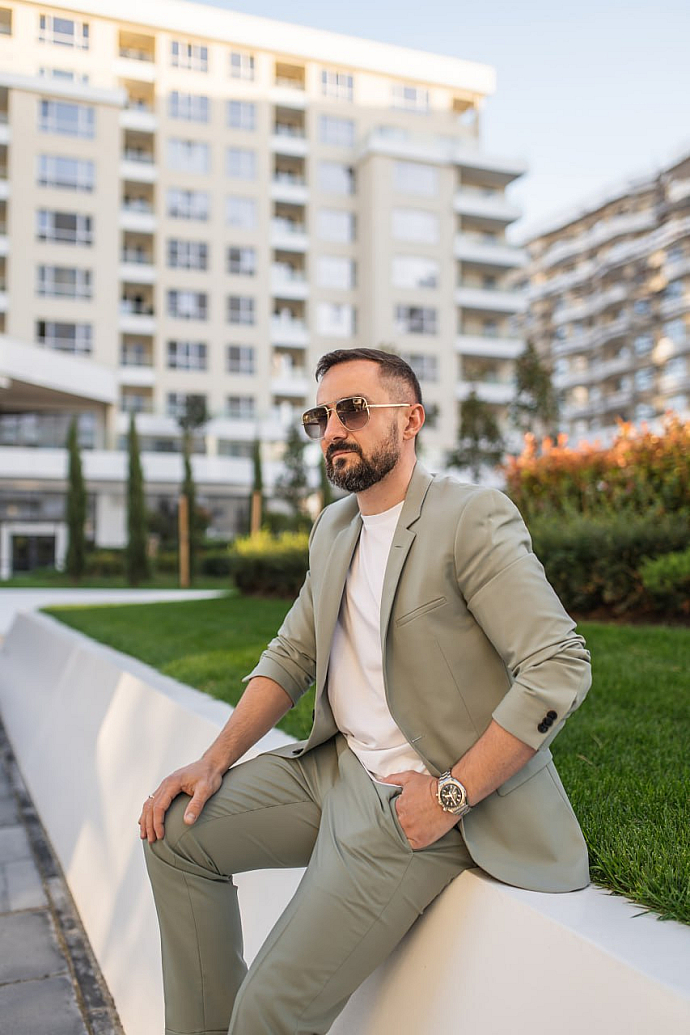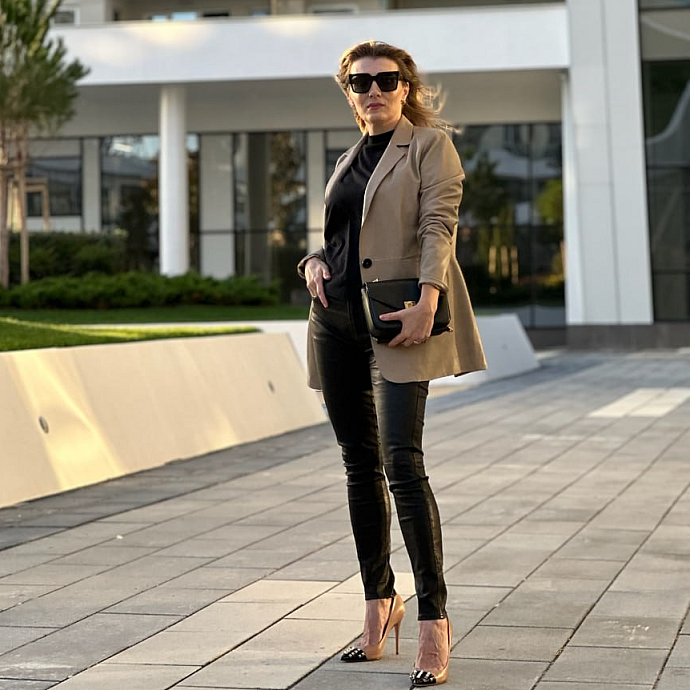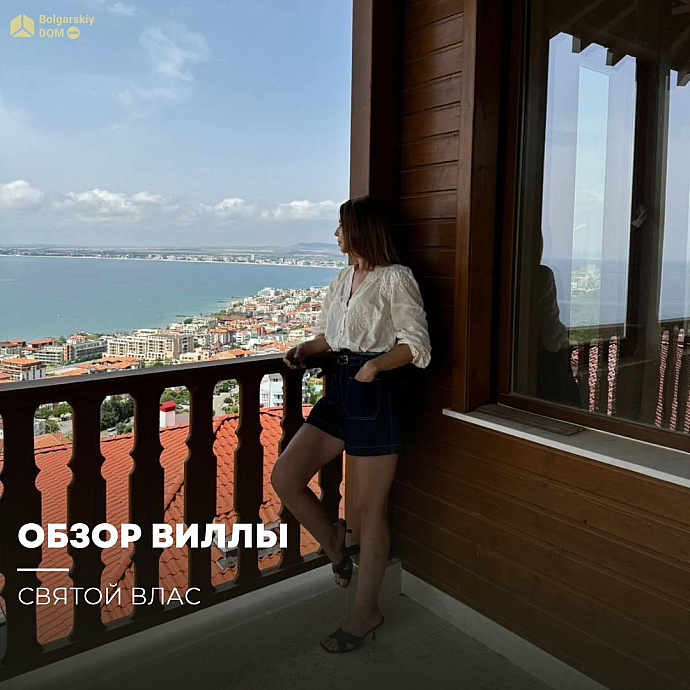The situation on the Bulgarian housing market in 2022 is formed under the influence of several shock factors: the war in Ukraine and unprecedented inflation caused by rising prices for energy, fuel, building materials.
How do these trends affect Bulgarian property prices? What is happening in the segment of resort and urban housing? About this and much more in our review of the Bulgarian property market in 2022.
5 trends in the housing market
- Prices are rising in double digits.The increase in the cost of Bulgarian "squares" was observed throughout 2021. On average in Bulgaria, the value of real estate increased by 10%. Housing has risen in price the most in major cities of the country: Varna, Burgas, Sofia, Plovdiv. At seaside resorts, the price bar is also growing, but at a slower pace.
- The demand for houses and apartments is increasing against the backdrop of high inflation. Since the beginning of the war in Ukraine, the demand for Bulgarian real estate has grown by 20%. Bulgarians and citizens of Western Europe predominate among homebuyers. This is happening against the background of accelerating inflation and the desire to protect money from depreciation. Real estate in this case is considered as a reliable asset.
- The structure of foreign buyers and sellers is changing. Recently, many Ukrainians have appeared among buyers who invest in apartments in Bulgaria. Someone is planning to sell the purchased apartments after the crisis is over, others are thinking of renting it out during the holiday season.
- Russians sell real estate on the sea, the remote format of transactions prevails. Citizens of Russia now mainly sell real estate, and most transactions are carried out remotely. Many are in a hurry, while it is still possible to transfer money received from the sale of housing to Russian banks. However, some owners are in no hurry to sell housing, even at good prices, because of the difficulties that may arise in Russia with the withdrawal of foreign currency from accounts.
- There is an acute shortage of quality housing. There is a shortage of liquid residential properties on the market, which puts even more pressure on prices. The fact is that the growth in the cost of building materials has led to an increase in the cost of construction, which is why many developers have frozen projects, while others have raised prices.
Statistics on the cost of housing for 2021
According to the Bulgarian National Statistical Institute (NSI), the cost of real estate in 2021 increased by an average of 9.4%. Secondary properties (+10%) went up the most, new buildings - by 8.4%.
Varna leads Bulgaria in terms of house price growth - in the fourth quarter of 2021, the price bar rose by 10.8% year on year.
In Burgas the value increased by 9.1% year on year, in the secondary real estate segment the growth was 13%.
Sofia ranks third in terms of price growth among Bulgarian cities included in the NSI statistics. In the Bulgarian capital, houses and apartments have risen in price by an average of 9.1%, and in some areas prices have increased by 40%.
| Type | Change (%) in 2021 relative to the corresponding quarter of 2020 | |||
|---|---|---|---|---|
|
I |
II |
III |
IV |
|
|
General change |
+7.5% |
+9.1% |
+8.7% |
9.4% |
|
New housing |
+6.7% |
+7.2% |
+8.5% |
+8.4% |
|
Resale properties |
+8.0% |
+10.2% |
+8.8% |
+10.0% |
See our Review of the Bulgarian real estate market for 2021.
Real estate prices in Bulgaria in 2022
At the beginning of this year, the rise in prices in the housing sector continues, this is primarily due to an increase in the cost of building materials, a disruption in the supply of components in connection with the war in Ukraine, and panicked expectations of the population regarding future inflation.
In 2022, you can buy an apartment, house or studio on the Bulgarian coast at the following prices (the table shows the minimum price of the object):
| Type of housing / region (number of objects) | Apartments | New Property | Resale | Home |
|---|---|---|---|---|
| Sunny Beach (3114) |
€11,500 |
€10,500 |
€11,500 |
€100,000 |
| Saint Vlas (1790) |
€20,050 |
€30,600 |
€20,050 |
€170,000 |
| Nessebar (365) |
€23,300 |
€23,300 |
€26,000 |
€66,500 |
| Ravda (460) |
€30,030 |
€30,030 |
€34,000 |
€55,500 |
| Pomorie (295) |
€24,400 |
€30,660 |
€24,400 |
€73,900 |
| Sarafovo (165) |
€60,900 |
€61,200 |
€60,900 |
€150,000 |
| Burgas (120) |
€40,500 |
€60,000 |
€40,500 |
€50,990 |
| Sozopol (217) |
€28,890 |
€28,890 |
€40,500 |
€140,000 |
| Varna (120) |
€40,500 |
€60,000 |
€40,500 |
€50,000 |
Market and price forecasts
Prices will continue to rise. This is a global trend associated with growing demand, speculation in the market, high inflation rates, which primarily affect the housing segment at the stage of excavation. Following the rise in price of a new one, the cost of the secondary naturally increases.
Over time, a significant increase in prices will weaken the purchasing power of the population and may lead to a decrease in market activity and the normalization of supply and demand. Some experts suggest that the alignment of supply and demand may begin as early as late 2022 or early 2023.
Here you will find 5 reasons why property prices in Bulgaria will rise.
Now in the conditions of political instability and uncertainty it is difficult to make predictions for the future. Much will depend on how the conflict in Ukraine will develop, how quickly it will end and what the security situation will be in Europe.




.jpg)





“Now many construction projects are being frozen, so buyers are more inclined to invest in ready-made properties. In current realities, it is more safe and reliable. This trend has already led to a shortage of quality secondary apartments, which will increase over time. This will lead to an increase in interest in resale properties and a further increase in resale property prices.”